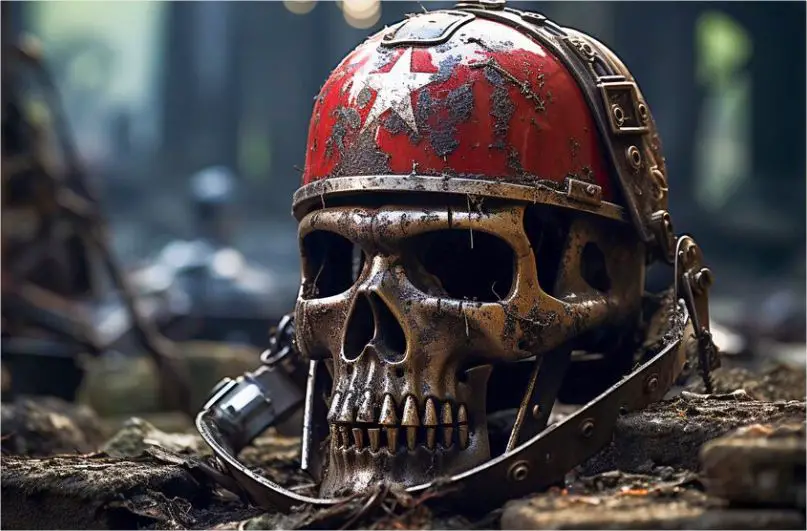Check out Chivalry is not dead meaning and why people who believe chivalry is dead don’t know the principles of chivalry. Here is why chivalry is not dead.
In a rapidly changing world, where societal norms and values evolve, the concept of chivalry is often debated and questioned.
Some claim that chivalry is a relic of the past, while others argue that it remains alive and well in modern times.
Amidst this ongoing discourse, it becomes essential to explore the reasons why chivalry is not dead.
This intriguing topic covers the various acts of kindness, respect, empathy and other acts of chivalry that persist in contemporary society.
By examining the evidence of chivalrous behavior, we can better understand the enduring significance of this age-old virtue and its impact on sustaining a more compassionate and considerate world.
In this article, we will talk about chivalry is not dead meaning, reasons why chivalry is not dead and everything surrounding it.
If you have not been following this blog, here is a recommended post you might love on chivalry – The History of Chivalry and examples.
Key Takeaways
- Despite modern society, chivalry endures through acts of kindness, respect, and empathy.
- Chivalry transcends gender, emphasizing universal kindness and respect, promoting equality, and inclusiveness.
- Media representation of chivalry through positive characters reinforces its value, to practice courteous behavior.
- Chivalrous leadership sustains supportive work environments, emphasizing respect, ethical behavior, and team empowerment.
Table of Contents
- Key Takeaways
- Chivalry is not Dead Meaning
- Is Chivalry Dead? Examining Societal Changes
- Reasons Why Chivalry is Not Dead
- Conclusion
- Frequently Asked Questions About Chivalry is not Dead
Chivalry is not Dead Meaning
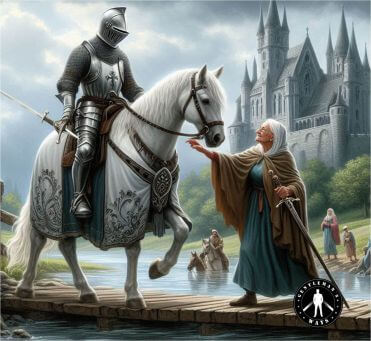
The phrase “Chivalry is not dead” is a concept of traditional manners and etiquette that emphasize respect, courtesy, and kindness towards others, especially towards women.
“Chivalry is not dead” became somewhat of a cliché used to emphasize that being polite and observing etiquette and manners is still relevant in the modern world.
Despite changes in masculinity in modern times and gender relations, the idea of chivalry is often seen as a positive and desirable trait in individuals.
It highlights qualities such as bravery, honor, and gallantry, demonstrating a willingness to protect and care for others.
“Chivalry is not dead” suggests that these values are still alive and relevant in today’s society, encouraging people to uphold chivalrous behavior towards others in their interactions and relationships.
Is Chivalry Dead? Examining Societal Changes
The question of whether chivalry is dead emerges frequently in contemporary discussions, often triggering animated debates that traverse various perspectives.
To grasp the essence of this discourse, it is essential to consider the significant societal changes that have reshaped interactions between genders over recent decades.
Initially, the traditional connotation of chivalry, rooted in the medieval framework of knightly conduct, revolved around the ideals of bravery, honor, and courteous behavior particularly towards women.
However, as gender roles have evolved, so too have the expectations surrounding chivalrous actions.
Today, many argue that chivalry’s prevalence is diminishing, coinciding with the rise of feminism and a greater emphasis on gender equality.
Proponents of this viewpoint suggest that contemporary notions of respect and equality imply a reduction in the need for distinctly chivalrous behaviors.
Conversely, some individuals assert that chivalry remains relevant, albeit in a transformed context.
They argue that acts of kindness, respect, and consideration which are hallmarks of chivalric behavior can coexist with modern values of gender equality.
From this perspective, chivalry does not necessarily imply a hierarchical relationship but rather, mutual respect and kindness.
Notably, younger generations may view chivalrous actions differently, often stressing the importance of these gestures in encouraging healthy relationships grounded in respect and equality.
Further complicating the discussion are the various interpretations that different genders have regarding chivalry.
While some men may feel restricted by the evolving definitions and fear being perceived as outdated, many women express appreciation for thoughtful gestures such as holding doors or offering assistance.
As society continues to evolve, the dialogue surrounding chivalry persists, with opinions varying widely among different groups.
Reasons Why Chivalry is Not Dead
In personal relationships, chivalry manifests through the use of polite language, thoughtful gestures, and expressions of gratitude.
Also, in professional settings, individuals display courteous behavior through attentive listening, showing appreciation for colleagues’ contributions, and addressing others with respect and dignity.
In our everyday encounter, we see or show acts of chivalry consciously or unconsciously to people we meet which points to the continued existence of chivalry.
Here are the 15 reasons why chivalry is not dead and they come in no particular order.
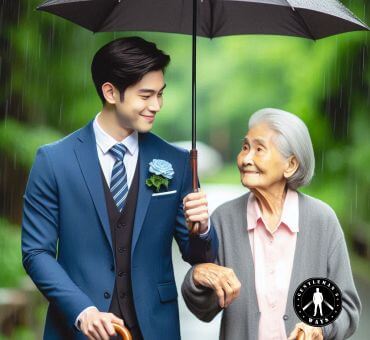
1. Acts of Courtesy
Acts of courtesy are polite, considerate behaviors that demonstrate respect and kindness, forming the foundation of chivalry.
Despite cultural shifts, small gestures such as holding doors open, offering seats, or yielding the right of way persist, proving chivalry is not dead.
These actions transcend gender, age, and status, fostering a positive, harmonious environment.
In relationships, whether romantic, familial, or professional, acts of courtesy strengthen bonds and highlight the value of cherishing one another.
By practicing these small acts, we preserve the essence of chivalry, ensuring it remains a vital part of modern society and human interaction.
Suggested: Ditch these Acts of Chivalry as a Modern Man
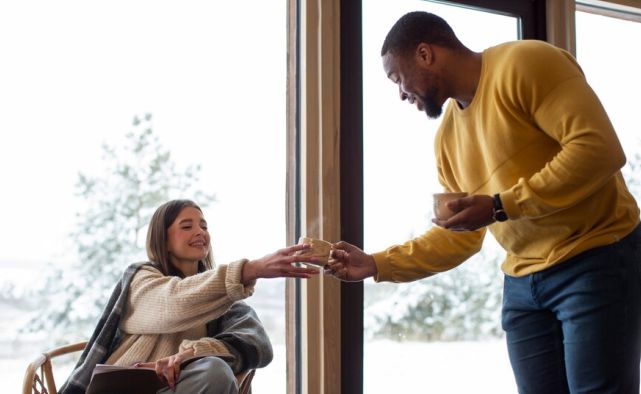
2. Respectful Communication
As much as there is a decline in respectful communication, with the rapid way social norms are changing.
Despite the impatience and rudeness often seen in the new generation, many individuals still uphold respect, which is key to chivalry.
In an era of evolving communication and online interactions, cyberbullying and toxic exchanges may suggest a decline in civility.
However, many people consciously choose respectful communication, valuing empathy and dignity.
Chivalry encompasses not only courteous actions but also how we engage in conversations, listen actively, avoid offensive language, and embrace diverse perspectives with an open mind.
3. Gender-neutral Chivalry
Gender-neutral chivalry reflects the modern approach of treating all individuals with kindness, respect, and courtesy, regardless of gender.
It adapts traditional chivalry to align with the principles of gender equality, showing that chivalry is not dead but evolving.
As societal norms shift and awareness of gender equality grows, this inclusive form of chivalry promotes dignity and kindness for everyone.
By embracing gender-neutral chivalry, individuals foster respect, inclusivity, and social harmony, proving that simple acts of kindness can still shape a more equal and respectful society today.
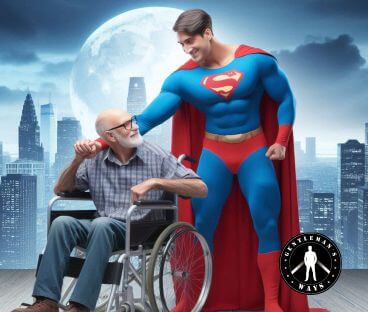
4. Empathy and Understanding
Chivalry is not dead, and one of the reasons for its continued existence is empathy and understanding.
Empathy is the ability to put oneself in someone else’s shoes, understand their feelings and experiences.
This quality allows individuals to recognize the importance of helping and respecting others.
Chivalry, at its core, is about kindness, honor, and respect towards others.
By empathizing with and understanding the experiences and struggles of others, individuals are more likely to engage in acts of chivalry.
Empathy and understanding promote a sense of compassion and intertwine with the values of chivalry, ensuring this noble behavior endures over time.
Related: Internet Chivalry and online interactions
5. Acts of Bravery
Acts of bravery demonstrate that chivalry is alive, even in a world where self-interest often dominates.
From soldiers risking their lives to protect others, to firefighters saving lives in dangerous situations, and everyday heroes standing against injustice, these courageous acts reflect honor, integrity, and compassion.
Chivalry isn’t about grand gestures but the everyday choices to be courageous and uphold what’s right.
These brave actions inspire others, reminding us that kindness and selflessness ensure the spirit of chivalry endures.
6. Romance and Relationships
Romance and relationships play a crucial role in keeping chivalry alive by fostering respect and kindness.
Once tied to medieval knights, chivalry has evolved into values that promote considerate behavior in modern relationships.
Small gestures like opening doors or offering help show care and respect, demonstrating a partner’s value for their significant other’s comfort and happiness.
Chivalry in relationships also emphasizes equality, consent, and mutual respect, promoting open communication and nurturing a loving, healthy connection, ultimately preserving the essence of chivalry.
7. Support for Diversity
Support for diversity is a compelling reason why chivalry is not dead.
Chivalry advocates respect, kindness, and consideration towards others, regardless of their background, ethnicity, or gender.
In a diverse society, chivalry becomes essential as it offers a framework to treat all individuals with fairness and dignity.
Chivalry encourages inclusive behavior, acknowledging the worth and value of each person.
It promotes showing empathy, understanding, and support to individuals from different cultures, enabling positive and harmonious interactions between diverse communities.
Also, chivalry demonstrates the ability to recognize and appreciate diverse perspectives, promoting acceptance and understanding.
It encourages individuals to consider different opinions and approaches, promoting tolerance.
Related: Medieval Romance in Courts by Knights and Ladies
8. Positive Role Models
Positive role models play a key role in keeping chivalry alive by demonstrating how it can coexist with equality and empowerment.
By embodying chivalrous values like respect, good manners, and offering help, they teach younger generations the importance of empathy and kindness in relationships.
These role models show that chivalry isn’t about control or gender-specific actions but is a mindset anyone can adopt.
This inclusive approach ensures that chivalry continues to thrive in a society that values mutual respect and equality for all.
9. Encouraging Next Generation
Although chivalry may seem to be fading in today’s society, encouraging the next generation is key to keeping it alive.
By teaching young people values like respect, kindness, and honor, older generations help ensure that chivalry endures.
These lessons foster strong relationships and unity within communities.
Emphasizing chivalrous actions, such as offering help and treating others with dignity, promotes empathy and compassion.
Encouraging both men and women to practice chivalry helps break down gender stereotypes, showing that kindness and respect are universal principles that benefit everyone.
Related: Rules of Knightly Love with Noblewomen
10. Acts of Kindness
Acts of kindness show that chivalry is not dead. Chivalry extends beyond traditional gender roles, embodying respect, honor, and generosity toward others.
Everyday good gestures prove that chivalry still thrives, reflecting values like empathy, politeness, and respect.
Kindness is contagious, one act can inspire others, creating a ripple effect.
In a world where negativity often prevails, these acts serve as reminders that chivalry lives on, upheld by individuals who choose to spread kindness and make a positive impact.
11. Media Representation
Media representation plays a key role in showing that chivalry still exists today.
Positive portrayals of chivalry in movies, TV shows, and literature highlight acts of kindness, respect, and empathy, reminding audiences of its enduring value.
These examples inspire viewers to emulate courteous behavior in their own lives.
Media also promotes gender-neutral chivalry, demonstrating that kindness and respect transcend traditional gender roles.
By portraying chivalry inclusively, media helps sustain these values across generations and diverse backgrounds in modern society.
12. Impact on Mental Well-Being
Chivalry positively impacts mental well-being, contributing to its persistence in the modern world.
Engaging in acts of kindness, respect, and empathy benefits both others and the individual practicing chivalry.
Courteous behavior encourages fulfillment, releases neurochemicals like dopamine and oxytocin, and enhances feelings of happiness and connection.
It also strengthens interpersonal relationships, reduces loneliness, and boosts self-esteem.
By cultivating a positive mindset, chivalry helps reduce stress and anxiety, giving individuals a sense of purpose and contentment, which promotes overall mental health.
13. Professional Etiquette
Chivalry endures due to its role in professional etiquette. In the workplace, courteous behavior promotes a productive and harmonious environment.
This includes politeness, active listening, and respectful interactions with colleagues and clients.
Chivalrous professionals avoid gossip and derogatory behavior, promoting mutual respect and effective communication.
By valuing others’ perspectives and showing consideration in networking and business dealings, chivalry enhances professional relationships and contributes to organizational success and reputation.
14. Chivalry in Leadership
Chivalry in leadership plays a key role in its continued relevance. Effective leaders practice respectful and empathetic behavior, actively listen, and value diverse perspectives.
They encourage supportive gestures, recognizing team contributions and putting well-being first.
By leading with integrity, fairness, and ethical decision-making, chivalrous leaders inspire loyalty, enhance job satisfaction, and create positive organizational cultures.
Their approach empowers teams and contributes to professional growth, underscoring chivalry’s enduring impact on effective and impactful leadership.
15. Recognizing the Small Gestures
Recognizing small gestures underscores why chivalry endures today. Despite our fast-paced lives, people still value and appreciate acts of kindness and respect.
Simple gestures like a “thank you” for holding a door or a genuine smile create a positive feedback loop, reinforcing courteous behavior.
Acknowledging these acts encourages others to practice kindness, fostering a culture of respect and compassion.
By valuing small acts, society reaffirms chivalry’s role in building caring and cohesive communities.
Conclusion
The evidence presented above clearly demonstrates that chivalry is not dead in the modern world.
From acts of courtesy and respectful communication to chivalry in leadership and media representation, the enduring presence of these virtues showcases society’s commitment to upholding values of kindness, respect, and empathy.
Recognizing the impact of small gestures and the positive effects on mental well-being further solidifies chivalry’s significance.
As individuals continue to understand “chivalry is not dead meaning”, embrace and practice chivalrous behavior in personal, professional, and societal contexts, it remains an essential aspect of promoting compassion, understanding, and harmonious relationships.
By valuing and preserving chivalry, we contribute to building a more caring and considerate world for generations to come.
Frequently Asked Questions About Chivalry is not Dead
What does the phrase “Chivalry is not dead” mean?
The phrase “Chivalry is not dead” means that the traditional values of respect, honor, and courteous behavior towards others are still relevant in modern society.
Is chivalry dead in dating?
Chivalry is not universally dead in dating, but its prevalence may vary among individuals and cultures.
Why chivalry is not dead?
Chivalry is not dead because many individuals still uphold the values of respect, kindness, and consideration towards others.
Who said chivalry was dead?
The origin of the specific phrase “Chivalry is dead” is uncertain and likely comes from various sources over time. It has been used in literature, films, and popular culture to convey the idea that traditional values of chivalry and politeness have diminished in modern society.
Is chivalry still relevant in today’s society?
The relevance of chivalry in today’s society is a subject of debate. While some argue that traditional chivalrous values are essential for promoting respect and kindness, others believe that modern interactions should focus on equality and mutual respect.
How can individuals demonstrate chivalry in their daily lives?
Individuals can demonstrate chivalry in their daily lives by practicing acts of kindness, respect, and consideration towards others. This may include holding doors open, offering assistance, using polite language, actively listening, and treating everyone with empathy and courtesy, promoting a culture of respect and goodwill.
References:
- https://www.berkeley-international.com/blog/is-chivalry-dead
- https://news.stthomas.edu/publication-article/chivalry-is-not-dead/
- https://www.linkedin.com/pulse/chivalry-dead-why-staci-weller/
- https://theconversation.com/no-chivalry-is-not-dead-but-its-about-time-it-was-174197
- https://www.theodysseyonline.com/chivalry-isnt-dead-it-is-differnt
Pyo Merez is a men’s lifestyle enthusiast and writer about the gentleman’s place and impact on society. Raised by a distinguished gentleman dad, he offers unique insights into how the mind of a gentleman works and how societal norms shape gentlemen’s identity and vice versa.
Through his insightful articles, Pyo taps into the depths of gentleman culture to provide perspectives on etiquette and manners in modern society.

